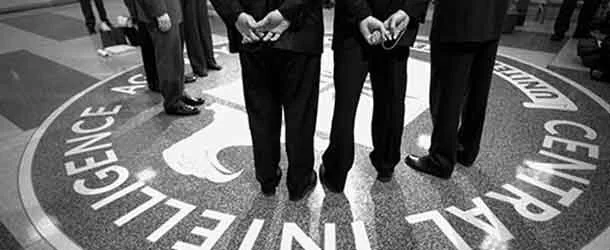Changing the Status Quo: Congressional Oversight of the CIA
With the recent passage of the first intelligence authorization bill in six years, congressional oversight of covert action will expand to unprecedented levels.With the recent passage of the first intelligence authorization bill in six years, congressional oversight of covert action will expand to unprecedented levels.According to the Washington Post, in most instances the entire membership of the House Permanent Select Committee on Intelligence (HPSCI) and the Senate Select Committee on Intelligence (SSCI) will be permitted to attend briefings detailing the CIA’s covert action programs. In the past, these types of briefings were limited to the so-called “Gang of Eight”, a group that was limited to the party leadership in both, the House and the Senate, as well as the chairs and ranking minority members of the HPSCI and SSCI. In extremely sensitive operations, the bill grants the White House authority to restrict the briefings to the Gang of Eight; even then the full committees will still receive a “general description” of the contents of the presidential finding that was required to launch the covert action program.Despite the best intentions of the bill’s authors, it is unlikely that this additional oversight will reduce the number of legally (and morally) questionable activities the CIA undertakes. In fact, since the reforms resulting from the 1970s-era Church Committee, Congress has had more briefings and more access to classified material than ever before, yet programs such as Iran-Contra, warrantless wiretapping, and enhanced interrogation were still were carried out.This is not necessarily because congressmen are shirking their responsibilities. As former congressman and vice chairman of the 9/11 Commission Lee Hamilton pointed out in a 2005 USA Today article, “The system relies on trust that the White House will accurately describe its programs and that lawmakers will keep secrets.”While the intelligence committees have, for the most part earned the intelligence community’s trust in terms of not leaking sensitive programs, the executive branch has not always held up its end of the bargain. For example, in 2009, it was revealed that the CIA, under orders from former Vice President Dick Cheney, had neglected to inform Congress about a secret counterterrorism program. Although the program never became operational, it solidified what many congressmen have long believed: the CIA is not forthcoming with information in their briefings with Congress. It is difficult to oversee an operation effectively if basic information is not provided.Another problem with oversight of covert action, especially during the Bush administration, was the numerous rules that frustrated Congress’s ability from performing its oversight functions. Staffers could not attend the briefings on operations such as the warrantless wiretapping program and legislators were not permitted to take notes or discuss the briefings with anyone not present. Considering that committee staffers are the true experts in intelligence topics, at least compared to the congressmen themselves (who generally lack a deep understanding of intelligence issues), the fact that they cannot be consulted is an obstacle to effective oversight.The executive branch is not the only one at fault, however. The highly partisan environment in the legislature also contributes to an oversight process that is deeply flawed. How can Congress ensure that covert action is respectful of the law if political considerations take precedent? Support for some of the most controversial covert action programs during the Bush administration was divided almost exactly down party lines. Were Republicans in favor of the program because of their political alignment with the White House? Were Democrats objecting to the programs based on principle, or simply for reason of partisanship? The oversight process lacks objectivity, which has resulted in some questionable covert action programs throughout the past decade.Few people would argue with the fact that oversight of the intelligence community is a positive development. Not only is it a check on the powers of the executive branch, it also makes American citizens feel a little better about their transparent, democratic government engaging in nefarious plots overseas.And therein lies the problem: Americans would like to have it both ways. They would like to be an open society, while at the same time permitting great latitude to the conduct of clandestine operations. The messy, ineffective oversight process is a result of these conflicting prioritiesIt is time for a new approach. Rather than the HPSCI and the SSCI, the Government Accountability Office should assume oversight responsibilities of covert action programs. In addition to its expertise in program evaluation, the GAO, as a non-partisan investigative agency, would take the partisanship out of oversight, which might encourage intelligence officials to provide more information about their programs. Of course, this new arrangement might not sit well with legislators who do not like to see their powers reduced. But if the United States is to engage in covert action overseas while staying true to U.S. values, the status quo must change. The photo in this article is being used under licensing by Focus. The original source can be found
